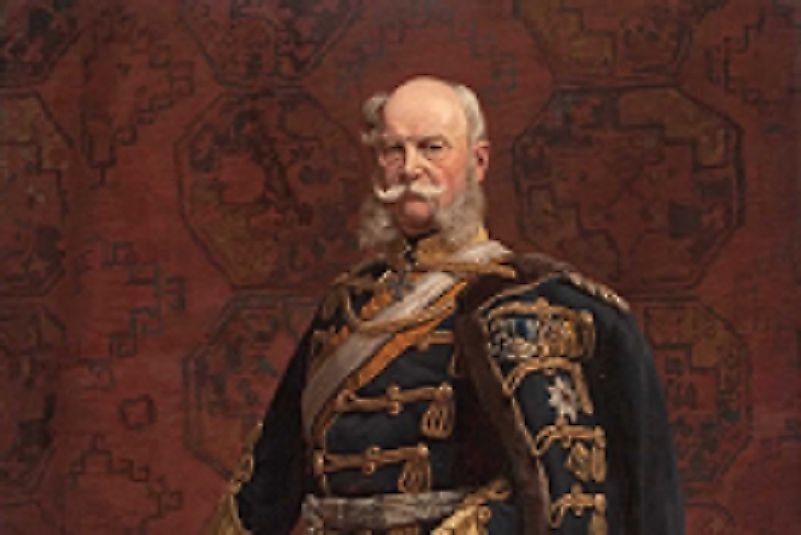Kaiser Wilhelm I of Germany - World Leaders in History

5. Early Life
William Frederick Louis of Prussia, later to be Kaiser Wilhelm I of Germany, was born on March 22nd, 1797, in Kronprinzenpalais (German for Crown Prince's Palace) in Berlin. He was the second son of Prince Frederick William III and the noble Princess Louisa of Mechlenburg-Sterlitz. He grew up under the tyranny of Napoleon I. From an early age he received private education and, as the second son of the King, he was not expected to take over the throne. Instead, according to Royal traditions, he was initially destined to become a military man. He was appointed an officer in the Prussian Army when he was only 12, and later on in his adolescence was commissioned as a Captain, and joined the Allied monarchs' fight against France when he was 16. During this period of time he participated in the war against Napoleon I.
4. Rise to Power
In the following years, Wilhelm I was devoted to his military service, and was determined to perfect the functionality of the Prussian Army. He helped quenched several uprisings, and hence consolidated the power of his brother, King Frederick Wilhelm IV. He also helped to set up the Vereinigter Landtag (the Prussian Parliament), and took a seat for himself in the Herrenhaus (its upper chamber). After King Frederick Wilhelm IV suffered a stroke and became mentally disabled, in 1857 Wilhelm I became the Royal Regent for his brother. Then, after King Frederick Wilhelm IV died childless, Wilhelm I became the King of Prussia in 1861. In the following years, he waged campaigns against Denmark, Austria, and, ultimately, France. In 1871, during the Franco-Prussian War, Wilhelm was proclaimed Emperor (Kaiser) of a now united German state.
3. Contributions
By proclaiming himself the German Emperor, King Wilhelm I transformed the former, loosely joined North German Confederation into the German Empire, which in fact was a unified Germany that soon established itself as a modern state. His most important contribution was arguably his appointment of Otto von Bismarck, the well-known "blood and iron chancellor", as the Minister President. With the help of Bismarck, King Wilhelm rapidly modernized Germany, making it into one of the most dominant military and economic powers in Europe. Wilhelm centralized power, built a strong military, and improved Germany's international status. It was also under his reign that Germany became one of the first modern welfare states.
2. Challenges
When Wilhelm became the King of Prussia, he faced an atmosphere of strong tension, caused by disagreements between German conservatives and liberals, the latter being influenced by Enlightenment ideals. Although he himself did not agree with the liberals, Wilhelm sought a balance between them and the conservatives, and avoided significant conflict within his government. Growing up under the tyranny of Napoleon I, Wilhelm also recognized the importance of the military to a country's wellbeing. Although his proposal to increase military expenditures and the length of military service faced serious challenges in the German Parliament, with the support of Bismarck he was able to pass his proposals. These controversial changes transformed Germany into a military state, and directly contributed to the First World War.
1. Death and Legacy
King Wilhelm I died on March 9th, 1888 in Berlin. He was buried at the Park Charlottenburg Mausoleum. He was a very popular emperor during his time, and many statues and memorials have since been built to honor him. He personified the transition from the Kingdom of Prussia and the North German Confederation into the German Empire, and as such became an important symbol of modern German identity. He was careful not to abuses his powers as the Emperor, and supported his chancellor, Bismarck, in efforts to transform Germany into a modern state, and a hegemonic power in Europe. At the same time, however, such intense militarization and ambitious conquest also to some extent gave rise to the military conflicts that characterized the first half of the 20th Century.











